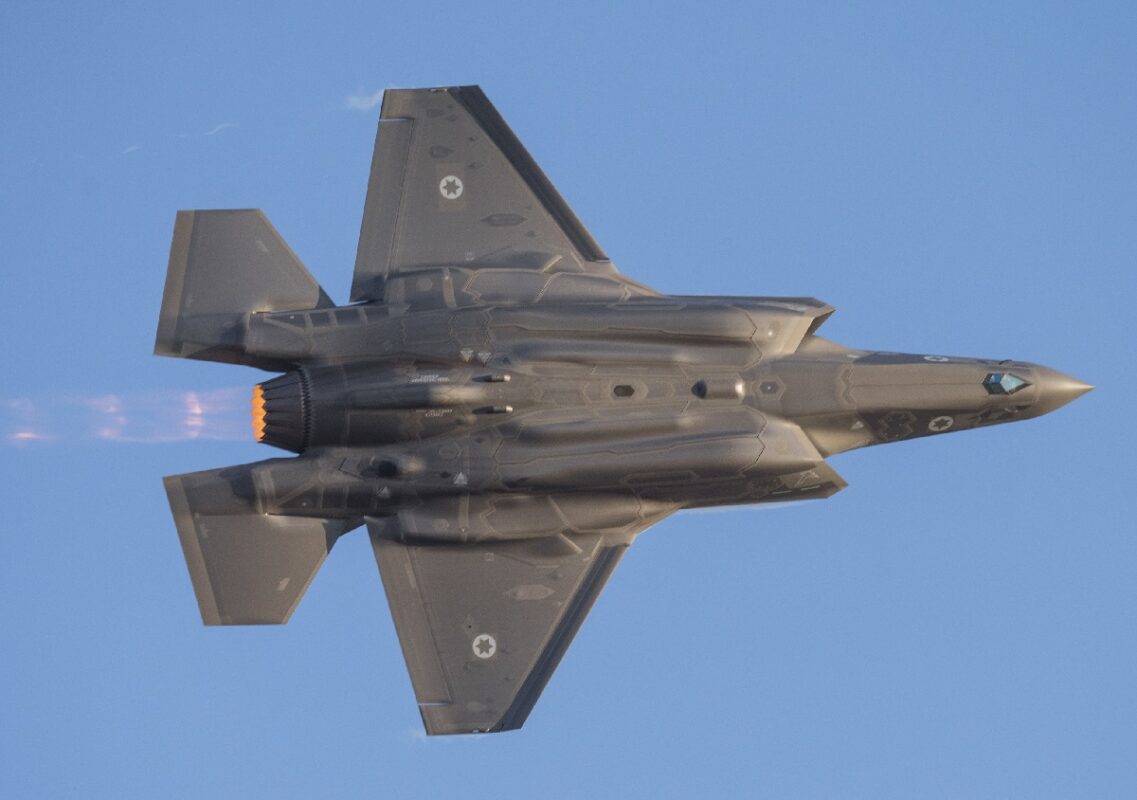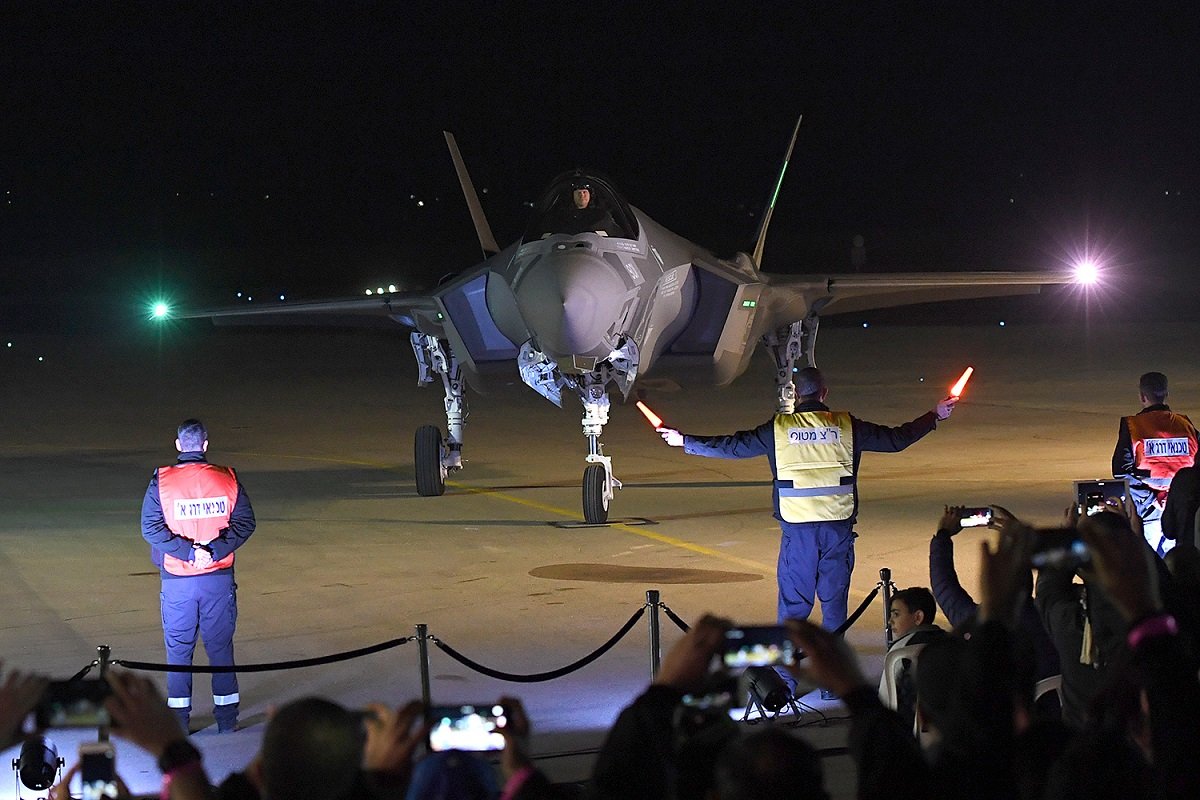In mid-February, U.S. President Joe Biden and Israeli Prime Minister Benjamin Netanyahu spoke for the first time since Biden entered the Oval Office. The phone-call was long-anticipated amid concerns in Israel about what U.S. intentions are for Middle East policy. After four years in which the Trump administration was openly and deeply supportive of Israel’s actions, Israel’s leadership is concerned about Iranian threats and how the U.S. might approach a new Iran nuclear deal.
Israel’s Iran Worries: Nuclear Weapons and More
Netanyahu has warned about Iran’s pursuit of nuclear weapons for decades. In a 2012 speech at the United Nations, he held up a drawing of a bomb and visibly showed where Israel’s “red line” was in regards to keeping Iran from enriching enough uranium for a nuclear weapon. Netanyahu warned again on February 23 that “with or without an agreement, we will do everything so Iran isn’t armed with nuclear weapons.” Back in 2012 reports indicated Iran would need around 55 lbs of uranium enriched to 90 percent for a single nuclear weapon. Iran has been warning in recent days that it could seek to enrich to 60%.
The nuclear tensions come amid other Iranian activities in the region. Rocket attacks on U.S. forces in Erbil and Baghdad in Iraq are believed to come from pro-Iranian militias and fit a pattern of increasing attacks since 2019. The Biden administration has been restrained in blaming Iran or saying it will respond. The Trump administration responded to similar attacks with airstrikes in December 2019 and March 2020.
Israel Prepares for Trouble
While the Iraq tensions are not linked to Israel-Iran tensions, they form part of a larger regional paradigm in which many conflicts are connected. Senior Israeli defense officials view these interlinked conflicts as having serious ramifications. That means, for instance, Iran’s support for the Houthi rebels in Yemen, entrenchment in Syria, and support for Hezbollah, all impact Israel.
On February 16, the day before the Biden-Netanyahu call, Israel launched a surprise exercise called Vered Hagalil. The Israel Defense Forces prepared the Israeli Air Force to transition to a state of high alert. The entire air force, including dozens of aircraft, were involved. Israeli Air Force commander Maj. Gen. Amikam Norkin said that the exercise improved the air force’s readiness. Reports indicate the air force prepared in the simulation to strike up to 3,000 Hezbollah targets in a day. That would be more than the highest daily tally for the U.S.-led Coalition in the 1991 war against Saddam Hussein’s Iraq.

F-35I Adir. Image: Creative Commons/IDF.
Israel expects to use its recent multi-year Momentum plan to harness its technology, F-35s, and air defense to overwhelm enemies in the next conflict. Israel recently also purchased two new KC-46 refuelers from the U.S., although these will take years to deliver. The country is seeking to bulk up its F-35 procurement from fifty planes to seventy-five and also buy more helicopters. It also announced this month it was beginning work on the Arrow-4 air defense system, part of its multi-layered air defense that already includes Iron Dome, David’s Sling, and Arrow. Israel has delivered two Iron Dome batters to the U.S. in the last year as the U.S. is also looking at the system for its short-range air defense needs. On February 23 Israel also announced a deal for its Trophy active protection system with Germany. In short, Israel has a plethora of military technology that prepares it for warfare against a complex opponent, like Iran and Iranian-backed proxies.
The larger picture is that Israel wants the U.S. administration engaged in the region and expects to build upon new peace deals with the UAE and Bahrain, as well as current peace partners Israel has in Jordan and Egypt. Iran tensions have a complex cycle to them. Hezbollah in Lebanon fired a surface-to-air missile at an Israeli drone on February 3. This type of incident is similar to incidents in 2020 when Hezbollah cut holes in a security fence and in the fall of 2019 when Israel attacked a Hezbollah drone team in Syria near the Golan Heights. These cyclical tensions could always escalate, but Israel hopes that its messaging, whether in contact with the Biden administration or through its recent air force drill, will send the message that is necessary to deter Iran.
Seth J. Frantzman is a Jerusalem-based journalist who holds a Ph.D. from the Hebrew University of Jerusalem. He is the executive director of the Middle East Center for Reporting and Analysis and a writing fellow at Middle East Forum. He is the author of After ISIS: America, Iran and the Struggle for the Middle East (Gefen Publishing) and Drone Wars: Pioneers, Killing Machines, Artificial Intelligence, and the Battle for the Future (Forthcoming, Bombardier Books). Follow him on Twitter at @sfrantzman.

